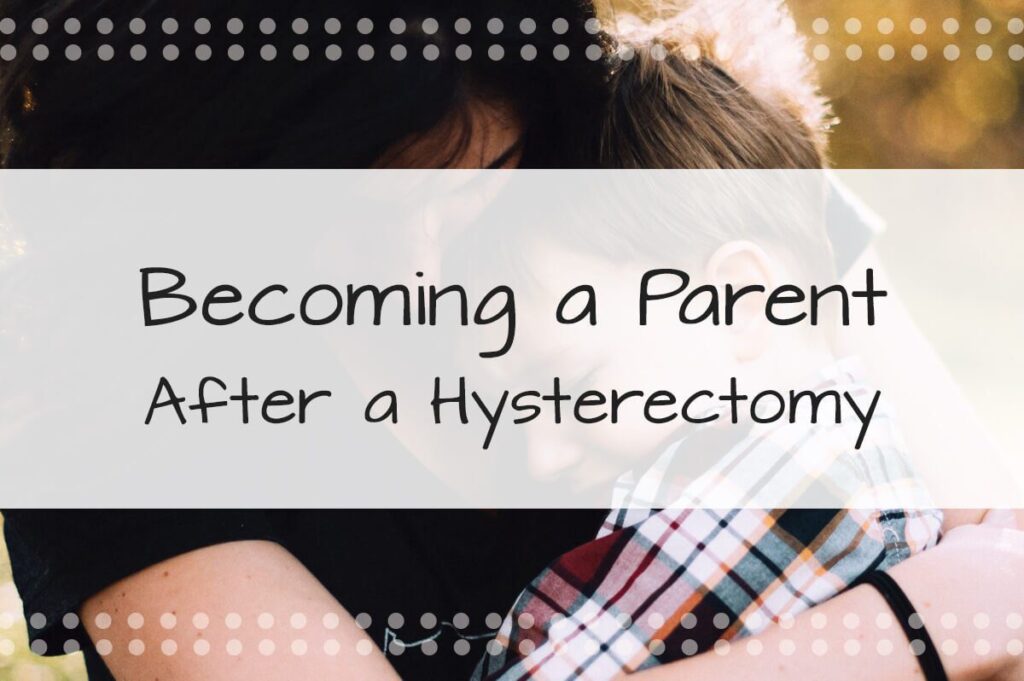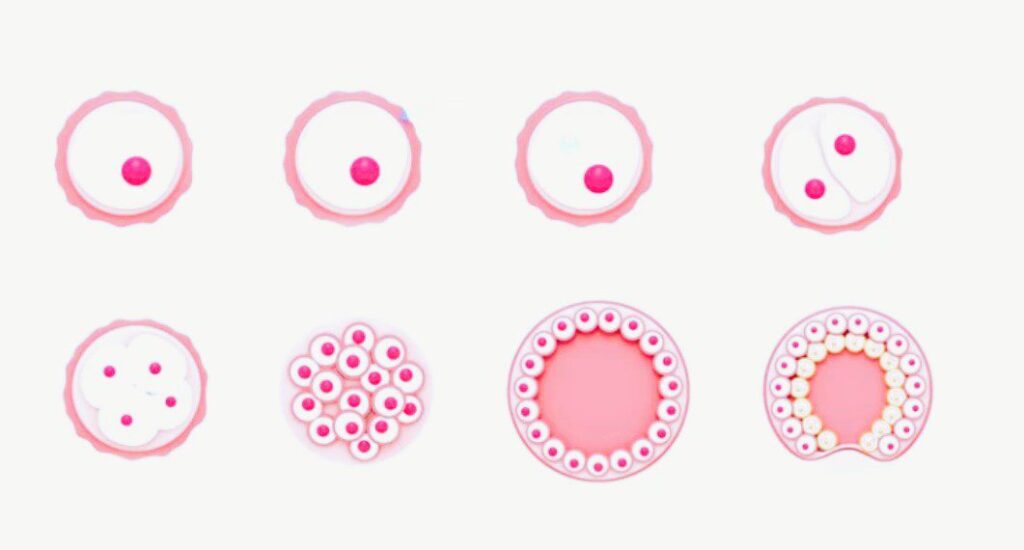Surrogacy After Hysterectomy: Exploring Your Options

Have you had a hysterectomy and are thinking about having a child? You are not alone. Gestational Surrogacy is a way for women in that position to become parents. It involves many steps, such as egg retrieval and finding a suitable gestational surrogate. We’ll also look into the legal and ethical issues. This guide is for anyone thinking about their options, whether they’re ready to start or just gathering information.
After a hysterectomy, can a woman still have her own genetic child with a surrogate? Surrogacy After Hysterectomy is one of the ways to achieve your parenthood dream. New technologies are changing the answer to this question. There are more options for those with uterine factor infertility than ever before. This includes looking at what’s possible and choosing the best route for your situation.
Key Takeaways
– Surrogacy is a realistic choice for women post-hysterectomy who can’t conceive.
– Through egg retrieval and gestational surrogacy, it’s possible to have a related child.
– Knowing the legal and ethical aspects of surrogacy is key.
– Working with professionals and getting support can make the path smoother.
– New tech means more possibilities for those with uterine factor infertility.
Get in touch for a Free Surrogacy Consultancy:
📲 +91-8800481100 ( WhatsApp, Line, Viber)

Understanding Hysterectomy and Its Impact
A hysterectomy is when the uterus is surgically removed. This may be needed for various health issues. We will look at different hysterectomy types. We’ll also see how it can affect ovary function and fertility.
What is a Hysterectomy?
A hysterectomy removes the uterus. This organ carries a pregnancy. Doctors may suggest this for women facing serious health conditions. These could be things like severe fibroids, endometriosis, or cancers.
Types of Hysterectomies
There are three types:
- Supracervical or subtotal hysterectomy: Only the top part of the uterus is removed, the cervix stays.
- Total hysterectomy: The whole uterus and cervix are taken out.
- Radical hysterectomy: The uterus, cervix, surrounding tissue, and some of the vagina are all removed.
Do Ovaries Release Eggs After Hysterectomy?

Even without a uterus, ovaries can still release eggs. This is true if they are not removed. But, the uterus’s absence can change how the ovaries and hormones work. This might affect a woman’s ability to have children and her health.
Egg Retrieval and Donation After Hysterectomy
After a hysterectomy, women can choose to save and use their own eggs for later. This is for having kids with help like IVF or a surrogate mother. Though they can’t donate to others, they can use their eggs in the right circumstances.
Can I Donate Eggs After a Hysterectomy?
Once you’ve had a hysterectomy, donating your eggs isn’t usually an option. To donate, a woman must get her eggs removed after taking special hormones. This is to help the eggs grow before they’re taken out. But without a uterus, these eggs can’t develop into babies. Yet, there are other paths to motherhood even after such surgery.
Harvesting Eggs Before Hysterectomy
If you know you’ll have a hysterectomy, you might still keep your fertility. Here’s how: your doctor can check if your eggs are healthy. Then, they might take some out to freeze or make into embryos soon. These embryos could later be used in IVF or by a gestational carrier.
This way, women with a future of infertility can plan for children. Even after losing their uterus, there’s hope for motherhood.
Talk to your fertility doctor. They can tell you what’s possible after checking your ovaries. Whether it’s IVF or freezing embryos, there might still be a way to have the family you dream of.
Additional Guides for Surrogate Mother:
Find a Surrogate Mother With or Without an Agency
In Which Country I Find Low-Cost Surrogate Mothers (in 2023)?
How can I Find a Surrogate Without Agency
What is the Age Limit for Surrogate Mothers
How Much Does Surrogacy Cost Using Family Member
How to Start the Gestational Surrogacy Process? A step-by-step guide for Beginners
How Much Does Surrogacy Cost? Everything You Need To Know (in 2023)
Surrogacy After Hysterectomy
Gestational surrogacy is often chosen by those who’ve had a hysterectomy. The embryo, made with the parents’ or donors’ eggs and sperm, is placed in the uterus of a surrogate. This way, parents missing a uterus can still have a child. The child will be linked genetically to one of the parents.
Gestational Surrogacy
In gestational surrogacy, the surrogate doesn’t give her an egg. Instead, the embryo is made through IVF with the parents’ or donors’ material. The surrogate carries and delivers the baby but isn’t biologically related. This method is ideal for those who can’t carry a baby after a hysterectomy.
Legal and Ethical Considerations
The rules and morals of surrogacy, post-hysterectomy, can be tricky. Parents need to follow state laws and check the surrogate’s qualifications. They should also consider ethical questions on third-party reproduction. Professional legal and medical advice is key to a smooth, ethical process. Everyone involved, from the surrogate to the parents and the child, should be considered.
| Consideration | Explanation |
| Surrogacy Legal Requirements | Laws for surrogacy differ greatly by state, with some being tougher than others. Parents must adhere to all legal rules. This includes making the right contracts and legal steps for their parental rights. |
| Surrogacy Ethical Issues | Issues like possible exploitation and the child’s welfare must be looked into. Open talks between parents and surrogates are vital. Seeking advice from mental health experts can help with ethical concerns. |
| Third-Party Reproduction | Surrogacy means a third party (the surrogate) helps with having a baby. This brings up deep, emotional, and legal questions that need careful consideration by everyone. |
| Surrogate Eligibility | Surrogates should be of legal age and have a successful childbirth history. They also undergo detailed health and mental health checks. Parents must check that their chosen surrogate fits all the criteria. |
Options for becoming a parent after a hysterectomy (removal of the uterus).
- Gestational Surrogacy:
- This involves using a gestational surrogate to carry and give birth to a child.
- The intended parents’ eggs and sperm (or donor eggs/sperm) are used for in vitro fertilization (IVF) to create embryos.
- The embryos are then transferred to the gestational surrogate’s uterus for her to carry the pregnancy.
- The gestational surrogate has no genetic connection to the child.
- Adoption:
- Adopting a child can be an option for individuals or couples who have undergone a hysterectomy.
- Adoption can be done through an agency, privately, or internationally.
- Options include adopting an infant, older child, or children with special needs.
- Egg Donation and Gestational Surrogacy:
- If the intended mother cannot produce viable eggs, donor eggs can be used in combination with the intended father’s sperm or donor sperm for IVF.
- The resulting embryos are then transferred to a gestational surrogate’s uterus.
- Embryo Adoption:
- This involves adopting the remaining embryos from another couple’s IVF cycle.
- The embryos are then transferred to a gestational surrogate’s uterus.
- Fostering to Adopt:
- Some individuals or couples choose to foster children with the intention of eventually adopting them.
- This can be a route to parenthood after a hysterectomy.
- Co-Parenting or Partnering:
- Individuals can explore co-parenting arrangements with another person or couple, where one party carries the pregnancy.
- Legal agreements are essential to establish parental rights and responsibilities.
- Here are the options for becoming a parent after a hysterectomy presented in a table format:
| Option | Description |
|---|---|
| Gestational Surrogacy | Using a gestational surrogate to carry and give birth to a child created through IVF with the intended parents’ or donor’s eggs and sperm. The surrogate has no genetic connection to the child. |
| Adoption | Legally adopting a child through an agency, privately, or internationally. Options include adopting an infant, older child, or children with special needs. |
| Egg Donation and Gestational Surrogacy | Using donor eggs combined with the intended father’s sperm or donor sperm for IVF. The resulting embryos are then transferred to a gestational surrogate’s uterus. |
| Embryo Adoption | Adopting remaining embryos from another couple’s IVF cycle and transferring them to a gestational surrogate’s uterus. |
| Fostering to Adopt | Fostering children with the intention of eventually adopting them. |
| Co-Parenting or Partnering | Entering into a legal co-parenting arrangement with another person or couple, where one party carries the pregnancy. |
Conclusion
 Surrogacy offers a way for women without a uterus to still experience motherhood. This can be through gestational surrogacy or using a donor’s eggs. Legal and ethical issues are complex, so getting help from experts is critical.
Surrogacy offers a way for women without a uterus to still experience motherhood. This can be through gestational surrogacy or using a donor’s eggs. Legal and ethical issues are complex, so getting help from experts is critical.
When choosing family-building options after a hysterectomy, think carefully. You should look at surrogacy choices, including legal and ethical issues. Support from professionals is really important in this process.
With the right information and support, you can make decisions that fit your values. Remember, there are many ways to start a family. There are professionals to help you every step of the way, even if you’ve had a hysterectomy.
If you’d like to learn more about IVF, Egg Donation, or surrogacy Consulting services globally, check out the rest of our website at IVF Conceptions. We offer legally secure and affordable surrogacy consulting services for FREE.
Mobile: +91-8800481100 ( WhatsApp, Line, Viber)
Email: neelam@ivfconceptions.com
Web: www.completesurrogacy.com
FAQ for Surrogacy After Hysterectomy
 What are the options for having children after a hysterectomy?
What are the options for having children after a hysterectomy?
After a hysterectomy, being a genetic parent is still possible with a gestational surrogate. The process involves egg collection, fertilization, and placing the embryo in the surrogate’s womb.
Can I donate my eggs after having a hysterectomy?
If you’ve had a hysterectomy, you can’t donate eggs directly. Yet, there’s still a chance to use your own eggs in IVF with a surrogate mother.
What are the legal and ethical considerations for surrogacy after hysterectomy?
The rules and ethical side of surrogacy are tricky, so expert advice is key. Key points include laws, who can be a surrogate, and the feelings of everyone involved.
How can I cope with the emotional and psychological challenges of infertility after a hysterectomy?
Get professional counseling and join support groups to handle the emotional strains. These can assist in working through sorrow, loss, and anxious feelings.
Source Links


